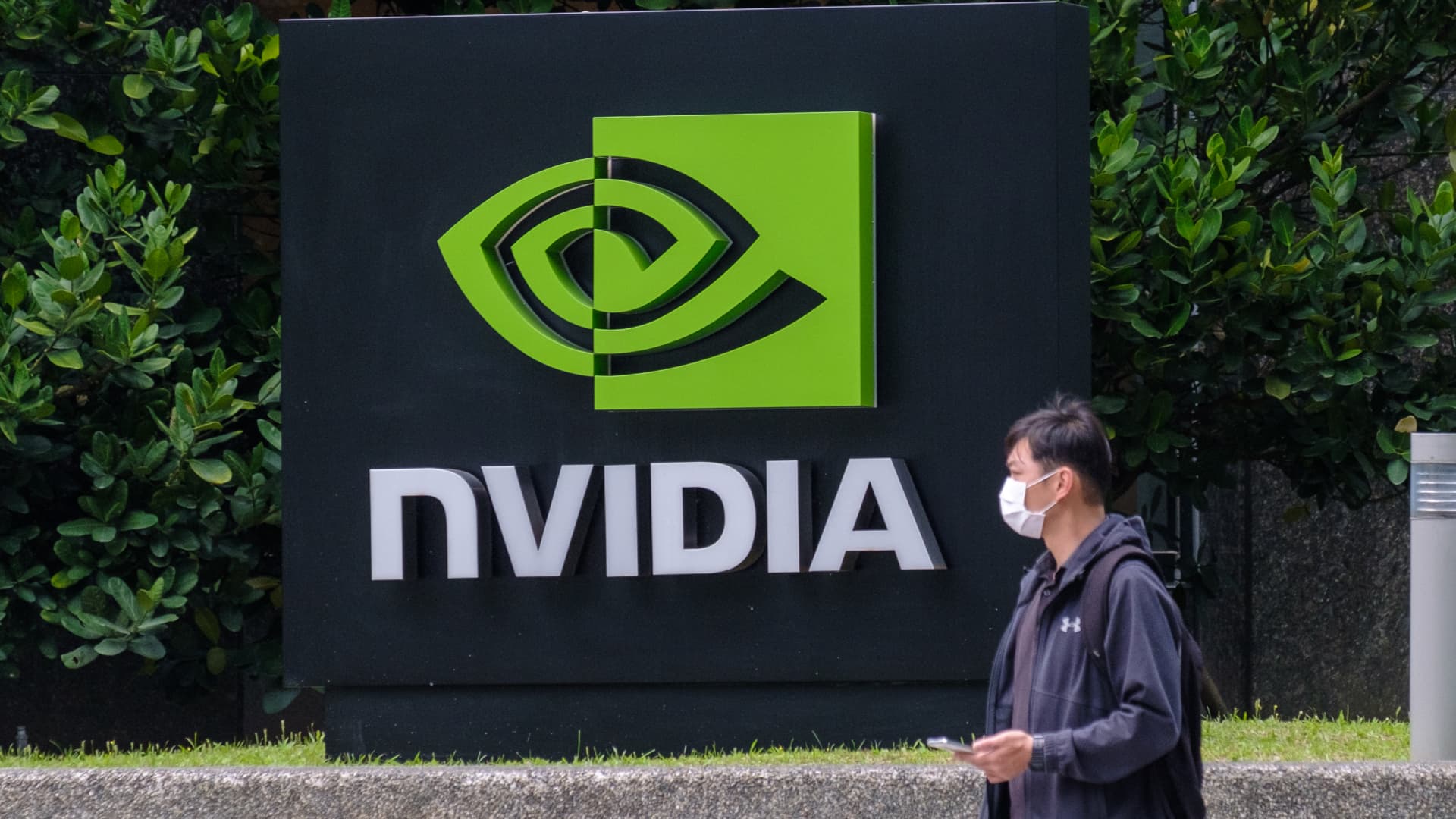China is placing orders for $5 billion worth of Nvidia chips, despite the fact that the chips have been deliberately limited in their capabilities for the Chinese market, indicating that the weakened processors are still more powerful than the alternatives available.
Nvidia's stock is surging as its stellar earnings alleviate concerns about supply constraints and the role of Chinese customers in driving demand.
Nvidia's dominance in the AI chip market and its reliance on a single manufacturer, TSMC, poses potential risks due to manufacturing disruptions and geopolitical tensions with Taiwan.
Nvidia stock is expected to more than double over the next 12 months, with analysts predicting a potential price target of over $1,000, thanks to the company's strong performance driven by AI and a reasonable valuation. However, challenges such as export restrictions to China and emerging competition may pose obstacles for the company.
Chinese GPU developers are looking to fill the void in their domestic market created by US restrictions on AI and HPC exports to China, with companies like ILuvatar CoreX and Moore Threads collaborating with local cloud computing providers to run their LLM services and shift their focus from gaming hardware to the data center business.
The U.S. has expanded export restrictions of Nvidia artificial-intelligence chips beyond China to other regions, including some countries in the Middle East, citing national security concerns.
China is planning a $41 billion fund to boost its semiconductor industry in response to US restrictions on exporting chips to the country.
China has defied US-led export restrictions by producing a 5G smartphone, Huawei's Mate 60 Pro, using an advanced silicon chip made by Semiconductor Manufacturing International Corp (SMIC), indicating progress in China's efforts to build a domestic chip ecosystem.
The Biden administration's export ban is causing China's largest contract chipmaker, SMIC, to face restrictions on export sales, leading to concerns about the acceleration of the US-China tech war.
China's economic challenges and failed rebound post-Covid are causing U.S. investors and businesses to view Chinese exposure as a liability, leading to underperformance in companies with high China exposure and potential bans on foreign devices, signaling a potential decline in China's economic growth.
Nvidia's record sales in AI chips have deterred investors from funding semiconductor start-ups, leading to an 80% decrease in US deals, as the cost of competing chips and the difficulty of breaking into the market have made them riskier investments.
Nvidia CEO Jensen Huang visited India to explore the country's potential as a source of AI talent, chip production, and market for their products, as the US restricts exports to China and India seeks to boost its electronics manufacturing and digital economy.
